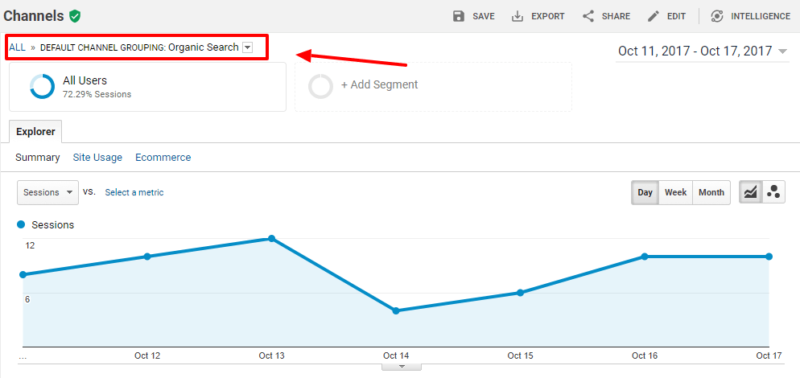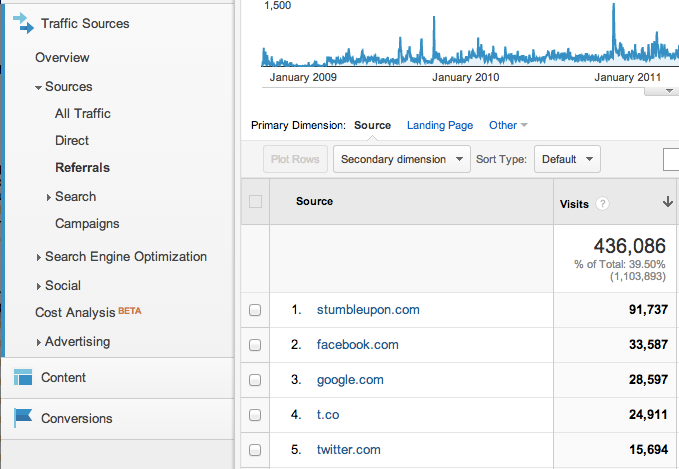Preface
Ignoring the SEO issues, even for a few days, can have a big impact on your business. So how to Monitoring SEO health? or how do we handle SEO and identify problems in the least amount of time? and how to configure your analytics platform?
Monitoring SEO health is essential to succeed in online businesses. Web site crashes can happen in the blink of an eye and waiting for monthly reports can bring your business to the brink of collapse.
There are metrics in SEO that should be reviewed daily or weekly to help prevent new issues on the website. Although these criteria do not refer to the problem as being private, they are a good start to discover the root cause of the problem.
what is Monitoring SEO health?
Web pages are ranked based on several factors determining how relevant they are to the users’ searches. Search Engines Optimization aims to get the higher ranking possible in SERPs (search engine results pages). If your SEO campaign is to be effective you must be able to monitor it. By monitoring your SEO efforts, you can gain insight into what activities translate into better rankings and lead conversions.

How to Monitor SEO health?
The methods we have discussed here are effective on many websites. These methods need to be configured to suit only those sites with specific needs or complex SEO programs.
Changes in Organic Traffic
Organic traffic ( traffic from search results ) is one of SEO’s biggest goals And the change in this type of traffic is largely from SEO. If you have a traffic jam:
- Identify the problem and describe the situation
- Use more metrics to help find the source of the problem
- Organic Traffic Check all sections separately to see if traffic drops originate from a particular location or if the entire website is affected.
- Categorize the data into two sections, mobile and desktop, to see which platform is most affected.
- Check out other marketing channels and check for traffic from these sources as well.
If your website gets high traffic, research what factors are involved and learn similar techniques in other areas as well.
Plan an alert on your Analytics platform to quickly detect alert traffic and send you an email of up to 5% if organic traffic drops weekly.

Change in traffic without reference
Many people only pay attention to organic traffic and do not pay attention to site traffic without reference. Because many users, after viewing your website from search results, may be able to log in directly next time by typing in a domain address. With the increasing level of search engine encryption and browser security, a lot of organic traffic on analytics platforms is directly (Direct) Are identified. This is more true for mobile traffic. If the traffic to the website is reduced without reference:
- Check whether the same thing happened with organic traffic.
- Also, check the data associated with mobile inputs and consider reducing traffic from this source, as many of today’s mobile browsers do not transmit reference data.
- If tagged UTM For other marketing channels you will probably experience unnecessary traffic reduction.
- Check out other marketing channels and check for traffic from these sources as well.
If traffic is increased without reference:
- Identify the factors involved in this area and apply it to other parts of the website.
- From the correct labeling, UTM makes sure.
- Check the increase in mobile site entries.
- Check the increase in entries from other marketing channels.
We suggest planning an alert on the Analytics platform that alerts you by email by increasing or decreasing 10% of non-referenced traffic from the previous week.
Change in referral traffic
referral traffic One of the parameters of increasing or decreasing backlinks in the site can be sites. It also helps us evaluate the value of backlinks. If the reference traffic is reduced:
- Check backlinks to ensure that your backlinks are not deleted.
- If you get a lot of traffic from a link, check to see if that website is updating or changing the design.
If the referral traffic increases:
- Check out what new sites are sending you traffic and look for similar ones.
Configure your Analytics platform to notify you by email if you decrease or increase more than 10% of your referenced traffic from last week.

Change in campaign traffic
Configure your Analytics platform to be notified by email if you have more or 20% more campaign traffic than last week.
Traffic obtained from emails
As in the case before, the traffic from emails can be signs of a decline in traffic to other sources. Configure your Analytics platform to notify you by email if you decrease or increase more than 20% of email traffic over the past week.
Change in Sessions
Nowadays users come to the site through different marketing tactics. Evaluation of growth or decline of cesarean section (sessions) Provides information about how successful your marketing tactics are. Configure your Analytics platform to notify you by email if you decrease or increase by more than 10% over the past week.
Change in the number of users
As well as the number of sessions, comments on the number of users on the website are also important. The number of users along with a few other parameters allows you to see if a website’s performance in search results has increased or older users are returning to the site. Configure your Analytics platform to notify you by email if you decrease or increase by more than 10% from last week.
Number of mobile users
As mentioned, mobile browsers transmit fewer referral data than desktop browsers. This makes it difficult to calculate the return on equity for mobile users. One study shows that 60% of traffic generated by search results is reported directly to mobile devices, especially mobile devices. Configure your Analytics platform to be notified by email by changes to the number of mobile users last week.

Increase page loading speed
Page loading speed It plays an important role in SEO and website performance. Increasing the loading time of the website transmits a negative signal to the search engines and the monitors are not able to perform well on the website. Users are also not able to work well with the website and conversion rates will be reduced.
Configure your Analytics platform to be notified by email if you increase the loading time by 10% over the previous day and increase the page load time by more than a certain amount. Also, make two separate reports per week for desktop and mobile users, in a way that will show you 50 pages at the slowest loading speed. Then use the tool Gtmetrix Prepare a report on site speed.
Server response time
Website speed is not always a factor in slowing down a site. Sometimes high response time slows down speed. Set up an automated report on your Analytics platform that will notify you by email if the server responds to a certain amount of time.
Monitoring errors
Reporting the Google Search Console errors from the website is critical to the SEO and health of the website. There may be many bugs in the backend that can be difficult to identify. You will also be notified if you change the address of a page and do not create a redirect.
This tool helps us to know if someone is giving you the wrong link in the content. To receive periodic reports on this subject, you must API Use Google Search Console in your Analytics tool.
Server errors
Identifying server errors using common SEO tools is difficult. You should be aware of this by setting up alerts in case of server errors.
Number of pages monitored per day
This parameter, along with other parameters of the amount of time spent downloading pages, is visible in Google Search Console. If the number of pages viewed per day decreases and the page load time is increased, this can be a sign of the decline in website performance. It is best to check these two parameters in the form of weekly reports.
The amount of brand name displayed in search results and the number of clicks
Changes to the number of keywords displayed and searched for your brand name should be examined to have a better understanding of the marketing impact.
The number of keywords displayed without a brand name, number of clicks, and clickthrough rate
Checking the number of public keywords displayed on the site in search results can reflect your SEO efforts. The number of changes in views, the impact of chapters on the number of searches, the change in the site click rate can all be good parameters for controlling a website’s SEO.
Keywords ranking
Ranking keywords in search results is one of the most important criteria for experts for monitoring SEO health. Naturally, with loss of rank, website traffic is also reduced. If your website rankings drop, your site’s keyword strategy may change or even the website will be penalized.
reports Manual Actions
One of the good tools of the Google Search Console section is Manual Actions. This section reports direct Google penalties on your site. Always check your email to be informed of the reports in this area in the least time. Note that in this section, algorithmic penalties will not be reported to you.
reports Security Issues
As in the previous section, you will be notified of malware and website security issues. Search engines use a variety of criteria to evaluate the presence of malware on a website. If you see a message in this section, try to fix it as soon as possible.
Section Reports Coverage
in part Coverage Google Search Console You will find out how Google indexes the site and its problems. For example, you will find the following data:
- How many site pages are in Google’s index?
- Have rules txt Blocked index pages?
- Are indexed pages having errors?
- Do meta tags prevent page indexing?
Bounce rate
The increase in the bounce rate indicates information about the health of a website’s SEO. bounce rate The following information may be indicated:
- Displays pages not relevant to the user’s needs
- Wrong targeting of keywords
- Poor user experience
- Low site speed
- Weak metadata
Adjust the analytics tool to alert you if the average bandwidth rises to more than 10%.
Displaying Pages404
Lots of frameworks like .NET Query an adding string to URL Pages 404. These pages can be easily accessed through analytics tools. Set up the Analytics tool to let you know if you increase the number of pages to 404 by more than 10% from last week.

conclusion: Follow your SEO metrics closely with SEO monitoring
We find it fascinating how many SEO metrics there are. And the ones I mentioned here are just the start. Don’t forget every time and continuously must behave monitoring SEO health with your special SEO Metrics.
The longer we work in digital marketing, the more I learn. we encourage you to dive deep into your analytics and get good at determining which data is most helpful for measuring SEO success.

